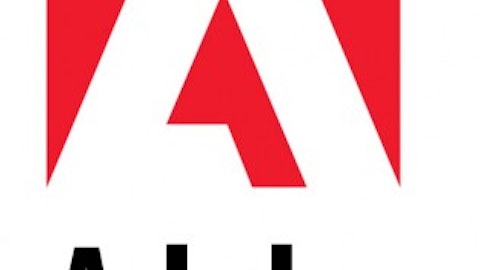Investors have yet another reason to watch for developments out of Silicon Valley over the coming weeks and months. Keynote Systems, Inc. (NASDAQ:KEYN) recently announced that it had agreed to be taken private by private equity firm Thoma Bravo for a significant premium over its pre-announcement stock price. The nearly $400 million deal would give the struggling firm a chance to restructure its operations beyond the prying eyes of analysts and investors.

Given the relatively small nature of this transaction and the lack of regulatory issues surrounding it, market-watchers expect it to close by the end of the third quarter of 2013. Although there is a chance that this timetable could be affected by legal challenges or an unexpected shareholder revolt, investors should not actively bet against it. With a decent arbitrage premium and some potential synergies in the offing, this deal warrants closer scrutiny.
Keynote Systems, Inc. (NASDAQ:KEYN) and Some Tough Competitors
Keynote Systems, Inc. (NASDAQ:KEYN) is by no means the leader in its field. In fact, the company must compete with several large rivals that have dominant market positions and diversified operational structures. Its two most noteworthy direct competitors are Adobe Systems Incorporated (NASDAQ:ADBE) and JDS Uniphase Corp (NASDAQ:JDSU).
These two competitors are both far larger than Keynote Systems, Inc. (NASDAQ:KEYN) itself. Adobe Systems Incorporated (NASDAQ:ADBE) has a robust market capitalization of nearly $23 million and an enterprise value of over $20 billion. For its part, JDS Uniphase Corp (NASDAQ:JDSU) has a market valuation of $3.3 billion and an enterprise value of just under $3 billion. These figures dwarf Keynote Systems, Inc. (NASDAQ:KEYN)’s respective tallies of $365 million and $191 million.
Keynote Systems, Inc. (NASDAQ:KEYN)’s earnings also leave something to be desired. In 2012, the company reported gross revenues of about $124 million but eked out a profit of just $2.5 million. By comparison, Adobe Systems Incorporated (NASDAQ:ADBE) posted earnings of $565 million on total revenues of about $4.3 billion for a far stronger profit margin of 13.3 percent. Then again, JDS Uniphase Corp (NASDAQ:JDSU) struggled across the finish line with total revenues of $1.7 billion and an after-tax loss of $62 million. All three of these companies have solid balance sheets that feature relatively little in the way of long-term debt. Of the three, JDS Uniphase Corp (NASDAQ:JDSU) appears to be the most overvalued: Its 3.2 price-to-book ratio persists despite its full-year loss in 2012. By contrast, Adobe Systems Incorporated (NASDAQ:ADBE)’s 3.34 ratio seems fairer. Keynote’s 1.53 figure might slightly undervalue a company that does not appear to be in dire financial or operational straits.
How the Deal Is Structured
The terms of this all-cash deal are relatively easy to understand. Thoma Bravo has agreed to issue cash payments of $20 per share to all Keynote shareholders of record as of a yet-to-be-determined closing date. At the moment, the transaction continues to hold out the possibility of an arbitrage premium: Keynote’s $19.75 share price is roughly 1.3 percent lower than Thoma Bravo’s offer price. While this is not the most impressive premium, high-volume traders who are willing to take advantage of momentary dips in Keynote’s stock price might be able to turn it to their advantage.
Potential Synergies and Benefits
Keynote’s management team has made no secret of its desire to become a leader in the development of mobile application software. Given the fast-changing nature of this industry and the increasingly unproductive nature of Keynote’s legacy operations, it is understandable that the company wishes to pursue this aim as the subsidiary of a private equity firm. The road ahead is likely to require an accelerated restructuring timetable and some tough decisions about personnel and capital allocation.
That said, this merger has the potential to create some strong synergies. If Keynote is able to transform itself into a mobile app powerhouse, it could emerge from its private equity incubator as a far stronger firm. It appears that Keynote’s management team is interested in partnering with major telecom players to deliver 4G and next-generation solutions. In five or 10 years, it would not be surprising to see the company issue a secondary public offering as a much stronger concern.
Potential Complications
Although such moves are commonplace, it is worth noting that several law firms have opened fact-gathering investigations into this deal. These investigations center on the “shopping” process in which Keynote’s management team engaged before accepting Thoma Bravo’s offer as well as the valuation of the agreed-upon deal. Although Thoma Bravo’s $20-per-share offer exceeded Keynote’s pre-announcement valuation by nearly 50 percent, some market-watchers feel that it shortchanges the company. At this point, it is not clear whether these investigations will precipitate lawsuits or other actions. However, investors should keep a close eye on the proceedings.
Invest or Stay Away?
In sum, this going-private transaction offers a small arbitrage premium and the possibility of some exciting synergies. While investors will not be able to play this transaction on a long-term basis, it may eventually bear fruit in the form of a much-strengthened Keynote Systems. On the other hand, Thoma Bravo’s efforts to tighten the firm’s operations and position it for growth could fail. Time will tell whether this deal turns out to be worthwhile.
Mike Thiessen has no position in any stocks mentioned. The Motley Fool recommends Adobe Systems. Mike is a member of The Motley Fool Blog Network — entries represent the personal opinion of the blogger and are not formally edited.
The article What Does This Transaction Mean and How Can You Benefit? originally appeared on Fool.com is written by Mike Thiessen.
Copyright © 1995 – 2013 The Motley Fool, LLC. All rights reserved. The Motley Fool has a disclosure policy.



